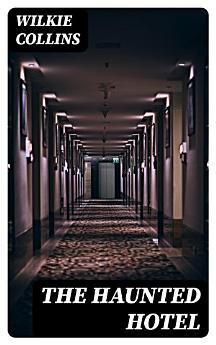The Haunted Hotel
พ.ย. 2022 · DigiCat
eBook
183
หน้า
family_home
มีสิทธิ์
info
reportคะแนนและรีวิวไม่ได้รับการตรวจสอบยืนยัน ดูข้อมูลเพิ่มเติม
เกี่ยวกับ eBook เล่มนี้
In 'The Haunted Hotel,' Wilkie Collins masterfully blends elements of gothic fiction with a gripping detective narrative, crafting a tale that immerses readers in a world of suspense and psychological intrigue. Set against the backdrop of a quintessentially eerie hotel, the story explores themes of illusion, identity, and the supernatural, underscoring Collins' innovative narrative style that frequently employs unreliable narrators and intricate plotting. The novel, published in the late Victorian era, reflects the period's fascination with the macabre and the burgeoning interest in spiritualism, while also addressing broader societal anxieties surrounding crime and morality. Wilkie Collins, a contemporary and friend of Charles Dickens, was a pioneering figure in the development of the mystery genre. His own experiences with the paranormal and his deep engagement with Victorian debates about science and mysticism undoubtedly influenced his writing. 'The Haunted Hotel' showcases Collins' ability to intertwine personal tribulations and societal concerns, drawing from his rich background in law and theatre, which lends a unique authenticity to his storytelling methods and character development. For readers interested in Victorian literature, gothic themes, and the evolution of mystery fiction, 'The Haunted Hotel' is an essential addition to the canon. Collins' engaging prose and compelling plot twists invite attendees to reflect on human nature's complexities while savoring an atmospheric reading experience. This novel not only entertains but also provokes profound thought regarding reality and the unknown.
เกี่ยวกับผู้แต่ง
Wilkie Collins was a prolific English novelist, playwright, and short story writer who is best remembered for pioneering the mystery and detective fiction genres. Born on January 8, 1824, in London, Collins developed a narrative style characterized by his ingenious use of suspense and his sharp social observations. He was a close friend of Charles Dickens, with whom he often collaborated. Collins's intricate plots and engrossing storytelling captivated Victorian audiences, and his work remains widely read and studied to this day. His most famous novels include 'The Woman in White' (1860) and 'The Moonstone' (1868), which are considered to be among the first modern detective novels, incorporating elements of Gothic horror, psychological realism, and the play of identity. 'The Haunted Hotel: A Mystery of Modern Venice' (1879) is another one of his notable works, a spine-chilling tale that combines elements of the supernatural with a keen analysis of the human psyche. Collins's contribution to literature extends beyond his narrative innovations; he also challenged the social norms of his day, including the treatment of women and the institution of marriage, through his memorable characters and intricate, socially conscious plots. Scholars frequently explore Collins's work for its ahead-of-its-time commentary on Victorian society, making him a fixture in discussions on 19th-century literature.
ให้คะแนน eBook นี้
แสดงความเห็นของคุณให้เรารับรู้
ข้อมูลในการอ่าน
สมาร์ทโฟนและแท็บเล็ต
ติดตั้งแอป Google Play Books สำหรับ Android และ iPad/iPhone แอปจะซิงค์โดยอัตโนมัติกับบัญชีของคุณ และช่วยให้คุณอ่านแบบออนไลน์หรือออฟไลน์ได้ทุกที่
แล็ปท็อปและคอมพิวเตอร์
คุณฟังหนังสือเสียงที่ซื้อจาก Google Play โดยใช้เว็บเบราว์เซอร์ในคอมพิวเตอร์ได้
eReader และอุปกรณ์อื่นๆ
หากต้องการอ่านบนอุปกรณ์ e-ink เช่น Kobo eReader คุณจะต้องดาวน์โหลดและโอนไฟล์ไปยังอุปกรณ์ของคุณ โปรดทำตามวิธีการอย่างละเอียดในศูนย์ช่วยเหลือเพื่อโอนไฟล์ไปยัง eReader ที่รองรับ








